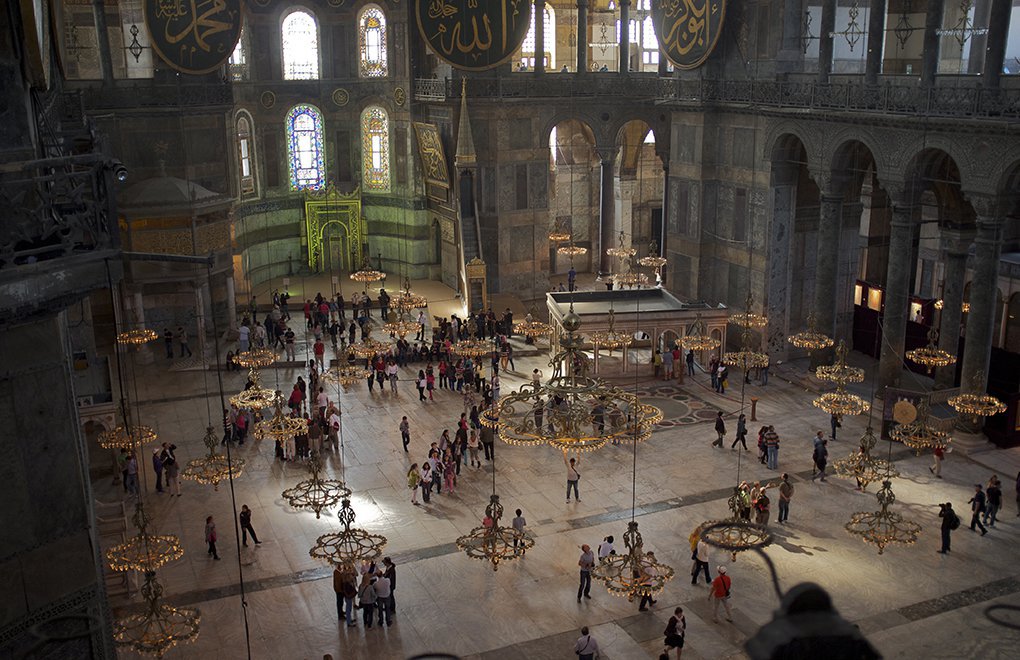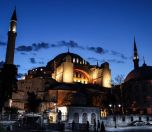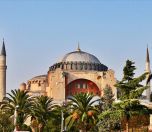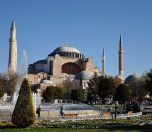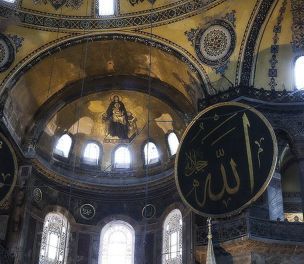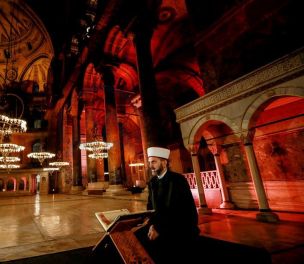* Photo: Aleksandr Zykov / flickr.com
Click to read the article in Turkish
While the 10th Chamber of the Council of State is expected to announce its ruling on whether Hagia Sophia shall be retained as a museum or converted back into a mosque, UNESCO has made a statement about the issue.
In their statements to Reuters, UNESCO officials have noted that "UNESCO must be notified of any change in the status of Hagia Sophia and the changes may have to be reviewed by its World Heritage committee."
Officials have also said that Hagia Sophia is on the UNESCO's list of World Heritage Sites as a museum and has certain commitments and legal obligations, adding that "a state must make sure that no modification undermines the outstanding universal value of a site listed on its territory."
"Any modification must be notified beforehand by the state to UNESCO and be reviewed if need be by the World Heritage Committee," they have noted.
UNESCO reportedly expressed its concerns to Turkey's authorities in several letters and conveyed the message to Turkey's ambassador to the institution: "We urge Turkish authorities to start a dialog before any decision is taken that could undermine the universal value of the site."
Reactions
Since early June, several reactions, both from and outside Turkey, have been expressed to the plans of converting Hagia Sophia back into a mosque.
On July 2, one day before the hearing of the case was held at the 10th Chamber of the Council of State, US Secretary of State Mike Pompeo shared a brief message on Twitter and said, "We urge the Government of Turkey to continue to maintain the Hagia Sophia as a museum, as an exemplar of its commitment to respect Turkey's diverse faith traditions and history, and to ensure it remains accessible to all."
CLICK - Pompeo urges Turkey 'to keep Hagia Sophia as a museum', Turkey slams his remarks
Greece, Russia and France also urged Turkey to keep Hagia Sophia as a museum amid debates regarding the building's status.
Spokesperson of Russia's Foreign Ministry, Maria Zakharova, said on July 2 that they expected the decision on Hagia Sophia's fate to be "measured" because of the importance of the issue for religious people.
"We believe that the monument is exceptionally important, in terms of culture and history, to the entire humanity. UNESCO has added Hagia Sophia to its list of World Heritage Sites," Zakharova indicated, adding that accessibility of the site should be maintained.
Greece's government spokesperson Stelios Petsas also pointed out that Hagia Sophia was a world heritage monument, adding that several countries had also expressed their concerns about this.
He warned Ankara "not to take steps which would create a huge emotional chasm between the Christians of the world and Turkey."
The Foreign Ministry of France also stated that Hagia Sophia should be accessible for everyone. "A symbol of tolerance and diversity, this place must remain open to all," it stated.
CLICK - Greece, Russia, France warn Turkey about Hagia Sophia
How did the issue come back into agenda?
A new debate on Hagia Sophia's status began on May 29, when a "Quran session" was held in the museum as part of the celebrations for "İstanbul's conquest." President and Justice and Development Party (AKP) Chair Recep Tayyip Erdoğan also attended it via videoconference.
Pro-government daily Hürriyet reported on June 5 that Erdoğan ordered his party to work for the conversion of the museum to a mosque. He reportedly told his party members that Quran can be recited and prayers can be performed in Hagia Sophia. He said that it might be open to both prayers and tourists, just as the Blue Mosque in the same district.
CLICK - Hagia Sophia Debate Revived After Erdoğan's Remarks: Will Turkey Reconvert It to a Mosque?
Judicial process about Hagia Sophia
The Permanent Foundations' Association for Serving Historical Artifacts and Surroundings appealed to the Council of State in 2005, challenging the status of Hagia Sophia in a lawsuit. The association demanded the stay of execution and the annulment of the Council of Ministers decree dated 1934 that paved the way for the Hagia Sophia's conversion into a museum.
The 10th Chamber of the Council of State rejected the request for stay of execution on June 24, 2005. In 2008, it rejected the lawsuit on the grounds that the use of Hagia Sophia as a museum was not against the law.
The Council of State's Plenary Session of Administrative Law Chambers upheld this verdict. The Association filed another lawsuit in 2016.
The Constitutional Court concluded the individual application of the Association in 2018. While the Association claimed that freedom of though and faith was violated, the court found the application "inadmissible" on the ground of "ratione personae non-jurisdiction without being examined."
Hagia Sophia was used as a church for 916 years. In 1453, it was converted into a mosque by Ottoman Sultan Mehmed II when the empire took over İstanbul. Under the Republic of Turkey, it became a museum in 1935. (HA/SD)




